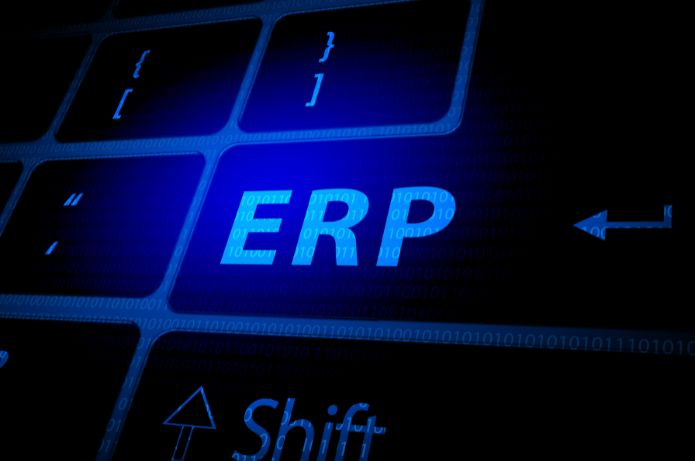Definição
ERP, sigla para Enterprise Resource Planning (Planejamento de Recursos Empresariais), é um sistema de software abrangente utilizado por empresas para gerenciar e integrar seus principais processos de negócios. Um ERP centraliza informações e operações de diferentes departamentos em uma única plataforma, permitindo uma visão holística e em tempo real do negócio.
História e Evolução
1. Origens: O conceito de ERP evoluiu dos sistemas MRP (Material Requirements Planning) dos anos 1960, que focavam principalmente na gestão de inventário.
2. Anos 1990: O termo “ERP” foi cunhado pelo Gartner Group, marcando a expansão desses sistemas para além da manufatura, incluindo finanças, recursos humanos e outras áreas.
3. ERP Moderno: Com o advento da computação em nuvem, os sistemas ERP tornaram-se mais acessíveis e flexíveis, adaptando-se a empresas de diversos tamanhos e setores.
Componentes Principais de um ERP
1. Finanças e Contabilidade: Gerenciamento de contas a pagar e receber, livro-razão, orçamentação.
2. Recursos Humanos: Folha de pagamento, recrutamento, treinamento, avaliação de desempenho.
3. Manufatura: Planejamento de produção, gestão de qualidade, manutenção.
4. Cadeia de Suprimentos: Compras, gestão de estoque, logística.
5. Vendas e Marketing: CRM, gestão de pedidos, previsão de vendas.
6. Gestão de Projetos: Planejamento, alocação de recursos, acompanhamento.
7. Business Intelligence: Relatórios, análises, dashboards.
Benefícios do ERP
1. Integração de Dados: Elimina silos de informação, proporcionando uma visão unificada do negócio.
2. Eficiência Operacional: Automatiza processos repetitivos e reduz erros manuais.
3. Tomada de Decisão Aprimorada: Oferece insights em tempo real para decisões mais informadas.
4. Conformidade e Controle: Facilita a adesão a regulamentações e padrões da indústria.
5. Escalabilidade: Adapta-se ao crescimento da empresa e a novas necessidades de negócio.
6. Colaboração Melhorada: Facilita a comunicação e o compartilhamento de informações entre departamentos.
7. Redução de Custos: A longo prazo, pode reduzir custos operacionais e de TI.
Desafios na Implementação do ERP
1. Custo Inicial: A implementação de um ERP pode ser um investimento significativo.
2. Complexidade: Requer planejamento cuidadoso e pode ser um processo demorado.
3. Resistência à Mudança: Funcionários podem resistir à adoção de novos processos e sistemas.
4. Personalização vs. Padronização: Equilibrar as necessidades específicas da empresa com as melhores práticas do setor.
5. Treinamento: Necessidade de treinamento extensivo para usuários em todos os níveis.
6. Migração de Dados: Transferir dados de sistemas legados pode ser desafiador.
Tipos de Implementação de ERP
1. On-Premise: O software é instalado e executado nos servidores da própria empresa.
2. Cloud-Based (SaaS): O software é acessado via internet e gerenciado pelo fornecedor.
3. Híbrido: Combina elementos de implementações on-premise e na nuvem.
Tendências Atuais em ERP
1. Inteligência Artificial e Machine Learning: Para automação avançada e insights preditivos.
2. Internet das Coisas (IoT): Integração com dispositivos conectados para coleta de dados em tempo real.
3. Mobile ERP: Acesso a funcionalidades do ERP através de dispositivos móveis.
4. Experiência do Usuário (UX): Foco em interfaces mais intuitivas e amigáveis.
5. Customização Simplificada: Ferramentas de low-code/no-code para personalização mais fácil.
6. Análise Avançada: Capacidades aprimoradas de business intelligence e analytics.
Escolhendo um Sistema ERP
Ao selecionar um ERP, as empresas devem considerar:
1. Requisitos específicos do negócio
2. Escalabilidade e flexibilidade do sistema
3. Custo total de propriedade (TCO)
4. Facilidade de uso e adoção pelos usuários
5. Suporte e manutenção oferecidos pelo fornecedor
6. Integrações com sistemas existentes
7. Segurança e conformidade com regulamentações
Implementação Bem-sucedida
Para uma implementação bem-sucedida de ERP, é crucial:
1. Obter apoio da alta administração
2. Definir objetivos claros e mensuráveis
3. Formar uma equipe de projeto multidisciplinar
4. Planejar cuidadosamente a migração de dados
5. Investir em treinamento abrangente
6. Gerenciar a mudança organizacional
7. Monitorar e ajustar continuamente após a implementação
Conclusão
O ERP é uma ferramenta poderosa que pode transformar a maneira como uma empresa opera. Ao integrar processos e dados em uma única plataforma, o ERP oferece uma visão unificada do negócio, melhorando a eficiência, a tomada de decisões e a competitividade. Embora a implementação possa ser desafiadora, os benefícios a longo prazo de um sistema ERP bem implementado podem ser substancial.


